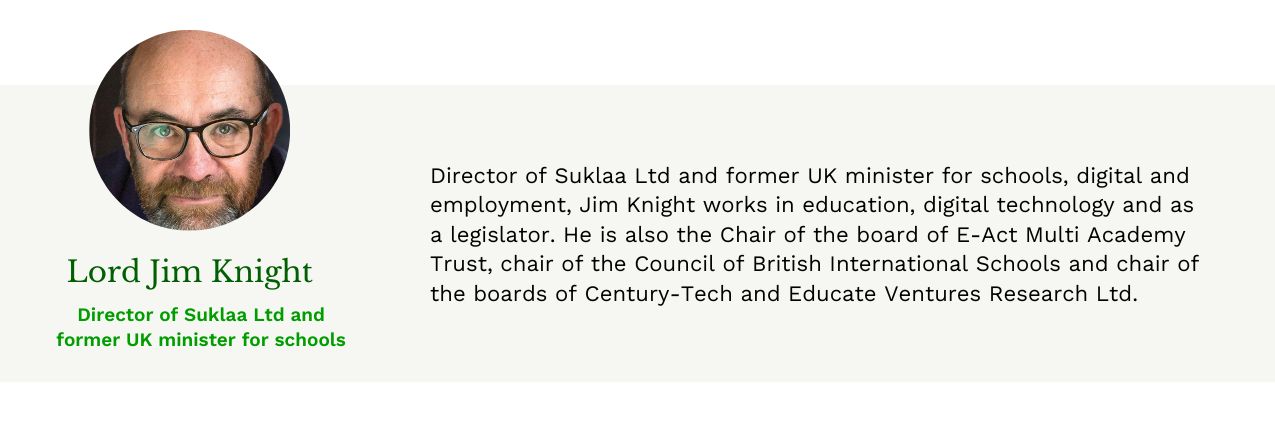
–
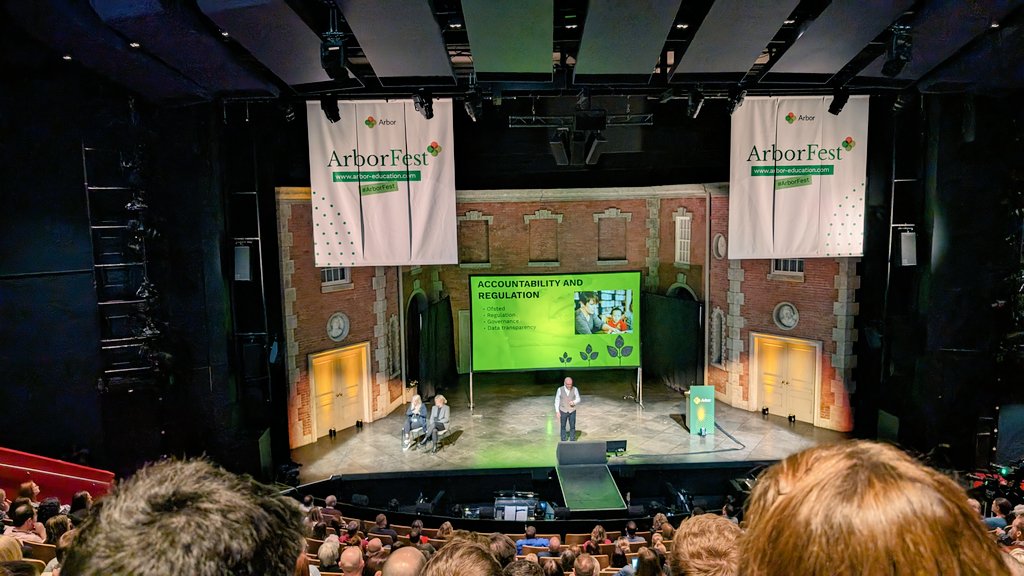
Catch-up on Part 1 of Jim’s talk at ArborFest here.
–
Curriculum, pedagogy and assessment are the holy trinity of the core business of schools and MATs. Though, of course, you are the experts, I thought it would be worth tapping into each of these briefly to see the direction of travel.
Curriculum: A question I asked in Part 1, is whether the curriculum is in the service of knowledge or is it in the service of children? I think that’s a core question, and I think the answer is another question: is your curriculum inclusive by design? That doesn’t mean just being really good at SEND, it means making curriculum and qualification choices that make everyone feel included, that make them all feel like they belong.
Pedagogy: Are we making the most of PedTech? Are we really thinking about the opportunity of technology to allow us to do things that were previously inconceivable? It’s possible to conceive of project based learning, but it’s really hard to do, and it’s really hard to then do project based learning and link it back to the curriculum requirements that are set out in the national curriculum that in the end you have to test people on. But AI could really help you do that.
Assessment: Of course, assessment’s going to change. The opportunity to be able to assess very differently, to be able to move away from the anachronism of large sports halls in the summer with small desks and paper and pen, to something that relates much more to the real world and allows us to start to assess collaborations, allows us to assess critical thinking, metacognition, some of the generic core skills that we’re going to need for humans to compete effectively against machines and collaborate effectively with each other in the future.
–
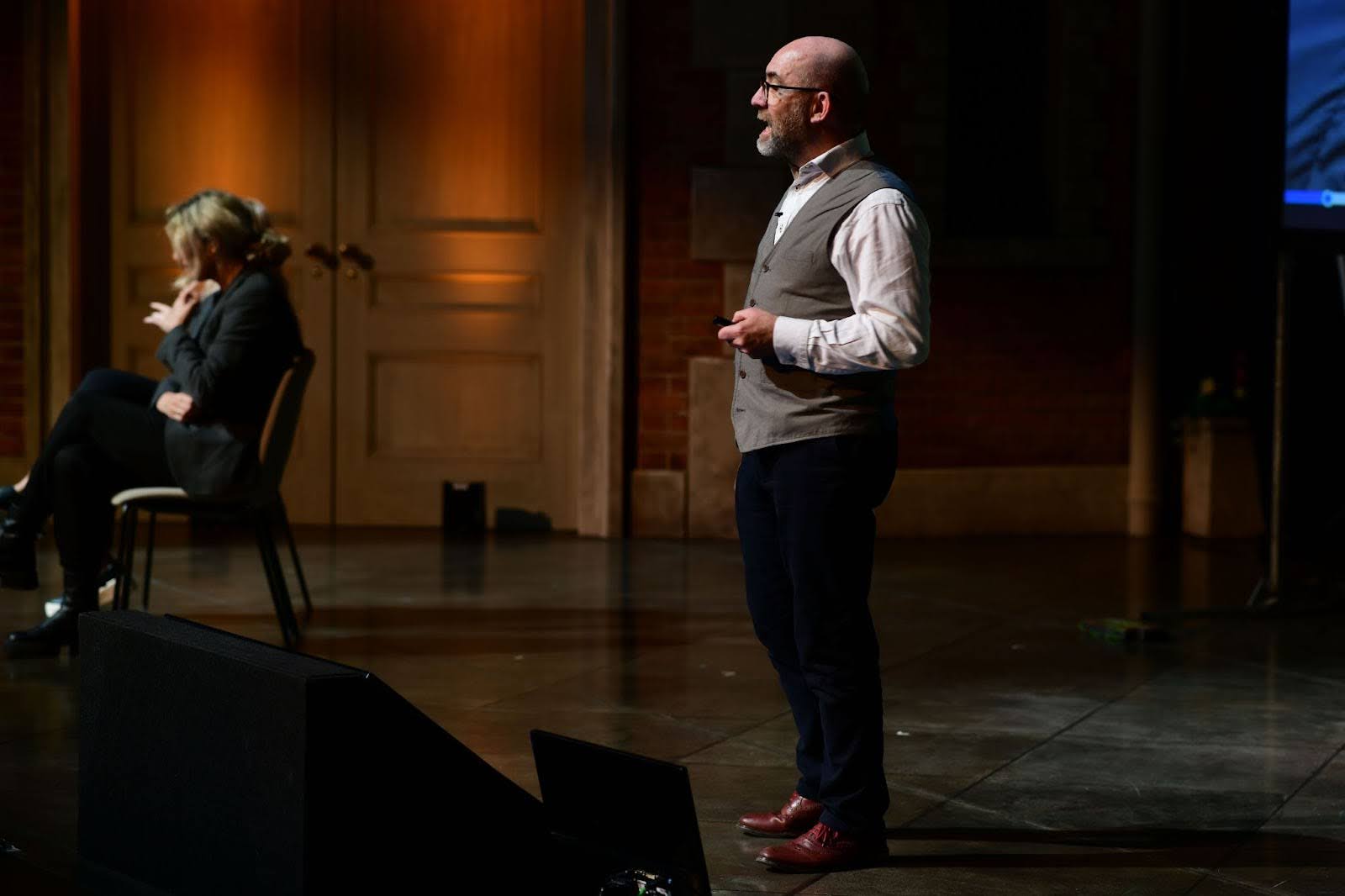
–
–
So then, what could we do now?
Belonging: Actions are louder than words. I think we should be now thinking how our schools and MATs are inclusive by design; and making this a priority, not an afterthought. This is not an easy process. How can we include every child in our school in the way that we go about things? There’s lots of good practice, there’s lots of tactics, there’s lots of good use of data and use of tech that can enable us to make a difference on attendance. But in the end, what matters most is whether your school gives you as a member of staff, as a pupil, as a parent, a sense of belonging. And there’s much more we need to think about in terms of how we nurture that.
Digital inclusivity: I’m not going to get into a debate about mobile phones, but I do think we need to ensure that all of our children are included in that digital world. Pearson are waiting for regulatory approval for the option of on screen GCSE English tests. Now, if OFQUAL gives the go ahead for that, that means children will be able to type their GCSE English exam rather than write it. That will advantage some children – but only if they have learned to type as well as to write.
Empower professionalism: As I’ve said, if we’re going to resolve the recruitment or retention crisis, we have to empower professionalism and reconnect with the culture of vocation. It’s the intrinsic motivation that makes you want to be a teacher that is way more powerful than the extrinsic one. Yes, we need to pay you properly, but intrinsic motivation really needs to work.
Nature: And a note to finish on, I work in the Houses of Parliament – there are no windows there or nature. But what we know is nature is really good, not only for your wellbeing, but for your brain development, as well as helping us connect with the sustainable future that we all want. So I would say make sure you also find time and opportunity for yourselves, your loved ones and the children that we serve to connect with nature too.
–
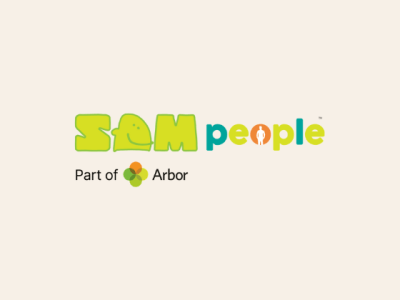
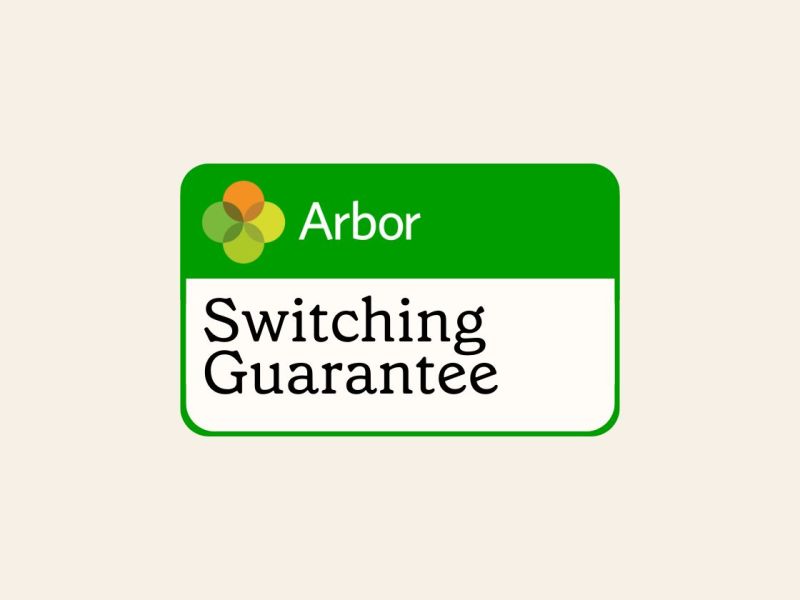
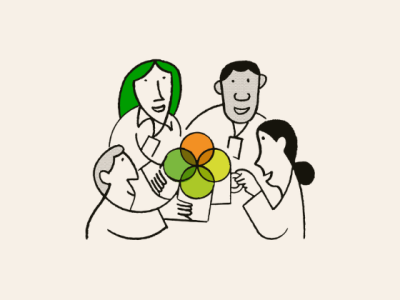



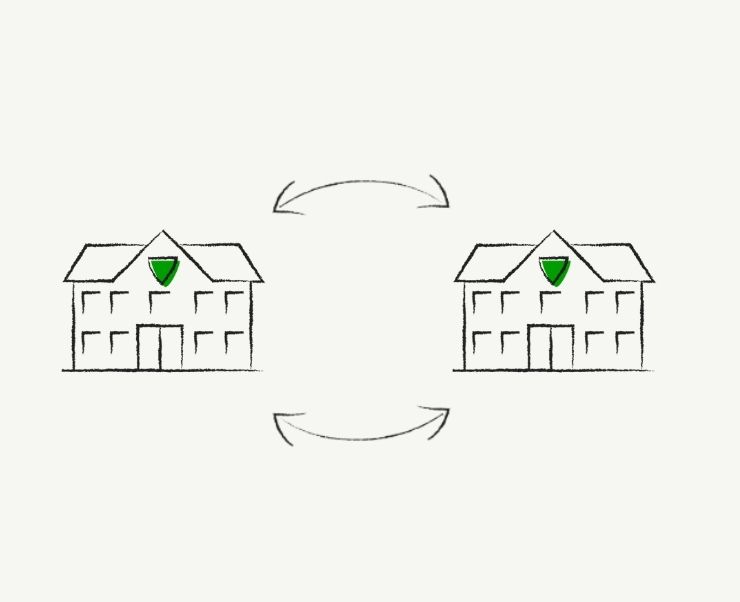
Leave a Reply